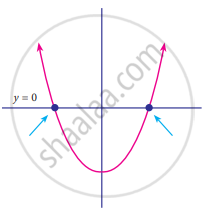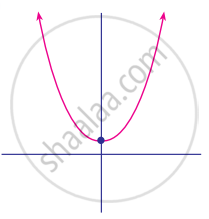Advertisements
Advertisements
Question
Find the zero of the polynomial in the following case:
p(x) = cx + d, c ≠ 0, c, d are real numbers.
Solution
p(x) = cx + d
p(x) = 0
cx + d = 0
x = `-d/c`
Therefore, for x = `-d/c`, the value of the polynomial is 0.
Hence, x = `-d/c` is a zero of the given polynomial.
APPEARS IN
RELATED QUESTIONS
Verify whether the following zeroes of the polynomial are indicated against them.
p(x) = 5x – π, `x = 4/5`
Find the zero of the polynomial in the following case:
p(x) = x – 5
Find the zero of the polynomial in the following case:
p(x) = 2x + 5
Find the zero of the polynomial in the following case:
p(x) = ax, a ≠ 0
Verify whether the indicated numbers is zeroes of the polynomials corresponding to them in the following case:
`g(x)=3x^2-2,` `x=2/sqrt3 2/sqrt3`
Find the zero of the polynomial of the following:
p(x) = x – 3
Find the number of zeros of the following polynomial represented by their graph

Find the number of zeros of the following polynomial represented by their graph

If `p(x) = x^2 - 2sqrt(2)x + 1`, then `p(2sqrt(2))` is equal to ______.
`(-4)/5` is a zero of 4 – 5y
